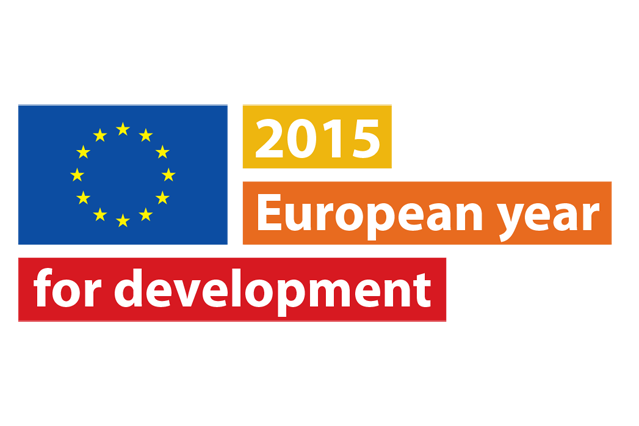Nearly a billion people around the world live in extreme poverty. Many more face hunger and disease or have no access to healthcare or education. Citizens recurrently turn to the Parliament inquiring about the EU’s role in supporting development in the world.
| 3 language versions available in PDF format FR: Aide au développement de l’Union européenne DE: Entwicklungshilfe der EU NL: EU-ontwikkelingshulp |
The EU’s contribution to supporting development is vital and parliamentary support and scrutiny is an important element.
 Together, the European Union and its Member States are the world’s largest aid donor, providing more than half of public aid worldwide. In 2013, they spent €56.5 billion on helping countries across the world in their fight against poverty. The EU’s policies in development promote good governance and tackle universal issues such as hunger and the preservation of natural resources.
Together, the European Union and its Member States are the world’s largest aid donor, providing more than half of public aid worldwide. In 2013, they spent €56.5 billion on helping countries across the world in their fight against poverty. The EU’s policies in development promote good governance and tackle universal issues such as hunger and the preservation of natural resources.
Currently, EU development aid goes to around 150 countries in the world. However, starting in 2014, the EU is increasingly focusing on the poorest places in the world. Therefore the EU will phase out direct aid to large countries such as India, Malaysia or many Latin American countries which, in recent years, have experienced strong economic growth.
The EU combines different types of support to countries in need. It provides funding in the form of grants to support projects and organisations furthering its development objectives. It also offers public contracts and provides budget and sector support.
The EU works with governments but also involves civil society organisations: this could be non-governmental organisations, trade unions, human rights groups, environmental organisations, chambers of commerce and many others.
EU programmes undergo regular independent audits. The European Commission and the EU Delegations in the beneficiary countries monitor and control projects and programmes they finance. Outside experts visit projects to check what the EU funding achieves. In addition, the European Court of Auditors examines specific projects and country programmes every year.
Responsible EU services
At the EU level, the European Commission’s department for international cooperation and development (EuropeAid) is responsible for the implementation, operation and delivery of development aid. The European Commission’s department for Humanitarian Aid and Civil Protection (ECHO) has the task to manage a European mechanism for disaster response both inside and outside the EU.
The European External Action Service (EEAS), for its part, ensures synergies between development and other areas of external action, such as human rights, security, stability, conflict prevention.
Within the European Parliament, the Committee on Development (DEVE) is responsible for the promotion, implementation and monitoring of the development and cooperation policy of the European Union. The committee participates in making the laws that frame EU development aid; it participates in deciding the budget for EU aid spending and keeps a close watch on the European Commission, the External Action Service and all those using EU aid funds.
EYD 2015 and its international context
2015 is the European Year for Development (EYD 2015) − a year dedicated to raising awareness and to engaging Europeans with the EU’s development cooperation. The Parliament played a leading role in making the EYD happen. On 2 April 2014 Parliament adopted a legislative resolution on the subject. MEPs stress that a focus on the issue of global interdependence illustrates that development is more than mere assistance, and fosters direct involvement in favour of development.
With the Millennium Development Goals (MDGs) concluding at the end of 2015, a post-2015 development agenda is expected to tackle many issues, including ending poverty and hunger, improving health and education, making cities more sustainable, combating climate change, and protecting oceans and forests. The European Parliament adopted a resolution of 13 June 2013 on the “Millennium Development Goals – defining the post-2015 framework”.
World leaders are expected to adopt the agenda at the Special Summit on Sustainable Development in September 2015.
Further information
The European Parliament website provides background information on the EU’s development policy and on humanitarian aid.
Additionally, the European Parliamentary Research Service (EPRS) analyses specific topics and sectors of EU development cooperation. It has published this year, inter alia, briefings on the theme of “The European Year for Development“, “Europe in the World“, “Education” and “Women and Girls“. An in-depth analysis, published in January 2015, focuses on “The challenge of coordinating European development policies“.








Its not EU aid, its our tax payers money! It is UK Aid or German Aid or some other member states aid. Why is the EU draping its colours over our tax payers money?
[…] for poverty eradication and sustainable development. As the world’s leading contributors of development aid, the EU and its Member States closely follow and help to shape these changes, while also taking the […]
Creatermovement /verus money system SOS hope future all of us.100.000 signatures of europe people right on a question of Union parlement. Question : Why money is still not prohibit and still legal knowing for 1000`s of years is killer/public enemy nr 1/roots of all evil???? peace, love and unity….
No more blood money (=all of it €) system = no more misery = no more slaverny = freedom = hope =………
[…] Quelle: http://epthinktank.eu/2015/03/24/eu-development-aid/ […]